
To learn more check out our
Editorial Guidelines.
10 min read
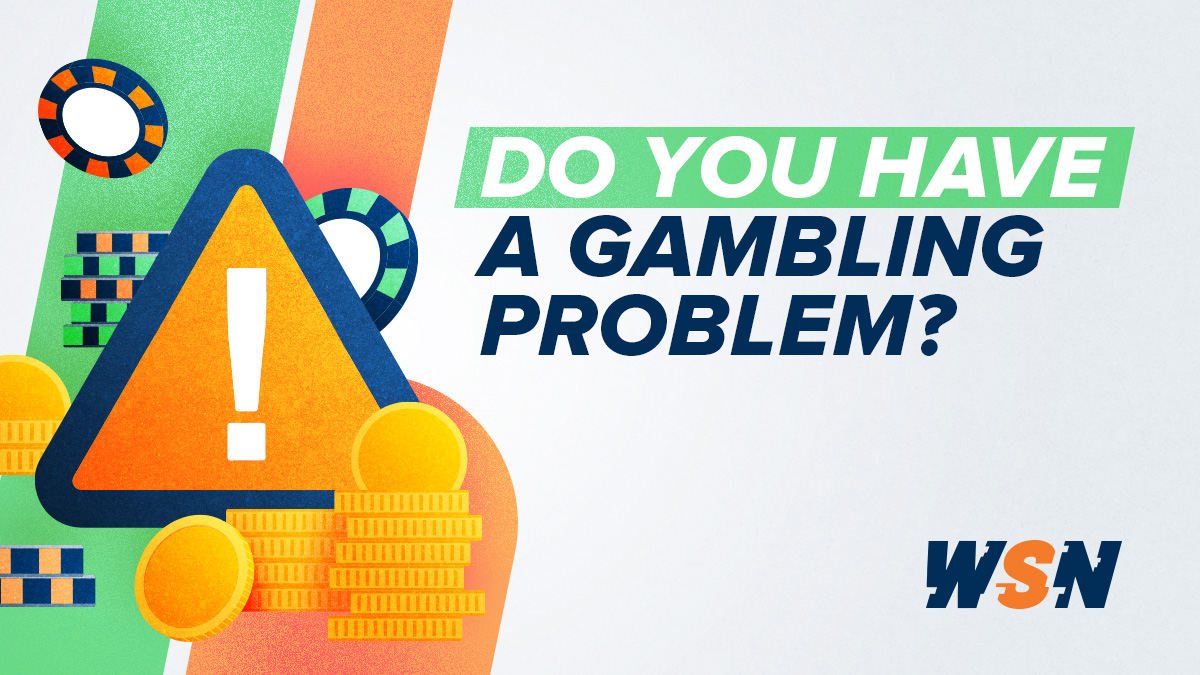
If you’re asking this question, or asking on behalf of a friend or family member, there is a good chance that something is not quite right in your relationship with gambling. Perhaps just a tweak is required to get you back on track with healthy gambling, or perhaps gambling has become a source of serious problems in your life that need immediate attention. Either way, it all starts with asking the right questions and evaluating your gambling habits honestly.
On this page, we’ll explain what problem gambling is, the common symptoms of a gambling problem, how to spot the signs, and how to help yourself or your friends and family recover from a gambling problem.
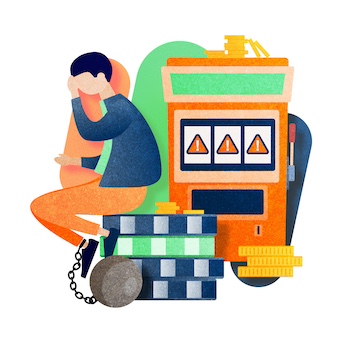 What Is Problem Gambling?
What Is Problem Gambling?Problem gambling is a term used to describe a condition in which a person experiences a strong urge to gamble despite negative consequences or a desire to stop. It is what happens when gambling stops being a form of recreation and begins to have an overall negative impact on a person’s life, including mental and physical problems.
Serious problem gambling can also be known as gambling addiction or compulsive gambling disorder.
People with a gambling problem may find that they need to bet more and more money to feel the same level of excitement, and they may experience withdrawal symptoms when they try to stop gambling. This can lead to financial problems, relationship and family issues, mental distress, and other negative consequences.
There are lots of signs that your relationship with gambling is becoming problematic, both large and small:
Routinely failing to stick to your budget or spending limits.
Gambling with the sole aim of winning money, especially trying to “win back” money you’ve already lost.
When your gambling spending begins to have an impact on other life expenses, like groceries or bills. Using your savings to gamble, or creating debt.
Being preoccupied with gambling, and constantly planning how to get more gambling money and get the next win.
Trying to control the gambling problem or even stop, with no success.
Gambling to escape problems or relieve feelings of helplessness, guilt, anxiety, or depression.
Lying to family members to hide the extent of your gambling.
Even if you’re aware something isn’t right, it can still be hard to pinpoint exactly what gambling problems you are experiencing. Self-assessment services - like this Gambling Self-Assessment Quiz - are a great tool to provide some structure and understanding around your experiences, and put you on the first step to recovery.
This quiz takes roughly two minutes and helps you discover whether your gambling habits show signs of problem gambling.
With self-assessment quizzes, the result is normally based on an index; the higher the score, the greater the risk that your gambling is a problem. Using the score and information you receive, you can take the necessary next steps, including contacting further support organizations if need be.
People don’t develop gambling problems in a vacuum. There are internal and external factors that mean some people are more predisposed to problem gambling than others. Here are a few of them:
Mental Health Issues: Those who gamble compulsively often have substance misuse problems, personality disorders, depression, or anxiety. There is also an association with bipolar disorder, obsessive-compulsive disorder, or attention-deficit/hyperactivity disorder.
Gender and Age: Compulsive gambling is more common in men than women. For women who develop gambling problems, it typically happens later in life and they become addicted quickly.
Environment: If you spend a lot of time in casinos or sportsbooks, or your family or friends have a gambling problem, you are at a greater risk. It’s important to avoid environments or people that can introduce temptation.
Personality Characteristics: If you’re highly competitive, impulsive, or easily bored, this can increase your risk of problem gambling.

Expert Opinion - Personality, Lifestyle and Gambling
Picking up on some of the personality traits and habits that indicate problem gambling, a big one in my experience is fluctuations in sleeping patterns. Oftentimes when a gambler's play gets out of control, they sleep odd hours because they don't sleep at night to avoid anyone else in the house seeing them gamble or bet on sports online. They often pick obscure sports from other countries that they know nothing about that take place at 2 or 3 am to chase their losses and a dopamine rush.
Athletes and military personnel also come to mind here. They typically have an extreme desire to win reinforced by a belief system that the longer/harder you practice, the more likely you are to control the outcome of what you are attempting to achieve. That mindset doesn't translate well into the world of gambling, often leading the ultra-competitive down a path of continuously chasing thinking eventually they will master this and will be more in control of their desired outcome. Not the case. All too often, they forget about the luck and randomness features of gambling.
- Daniel Umfleet
Founder & CEO at Kindbridge
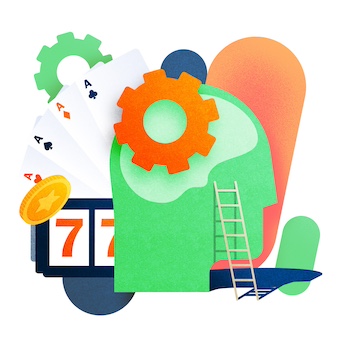 How to Change Your Gambling Behavior
How to Change Your Gambling BehaviorIf you or one of your friends or family have recognized that you’ve got a gambling problem, changing your behavior isn’t always easy. However, throughout the process, it is important to remember that you’re not alone and change is absolutely possible.
Here are a few practical steps you can take, to begin the road to recovery:
When you have a gambling problem, admitting it can be a real struggle. However, once you accept that you have a problem, the next step is to talk to someone. Vocalizing and formally acknowledging your problem is a huge achievement, and an outside perspective reduces the risk of isolation. It could be a friend, family member, counselor, or support group that can help discuss the problems.
Talking to someone about your feelings opens the door to change while reinforcing the feeling that you’re not alone.
If you’ve lost money while you’re in the process of recovering from a gambling problem, trying to win it back is a fallacy. Trying to recover your losses can lead to an even bigger loss and put you back into a gambling spiral. You need to learn to accept your losses and walk away.
During this period of recovery, you need to protect your finances. You might need to get rid of your credit card and to limit the amount of cash you have access to. Creating a budget and accounting for all of your living expenses means you’re less likely to use disposable cash to gamble.
If you have a gambling problem, you are likely to be battling the temptation to go into the casino or go to your favorite gambling sites. Banning yourself via self-exclusion is a very useful step. Self-exclusion is available both online and offline, and means that the casino or website won’t let you gamble with them even if you change your mind. You can also add gambling sites to your browser's restricted list or block them altogether.

Expert Opinion - Legal Support
Problem gambling can sometimes intersect with legal ramifications, adding another layer of complexity to the already challenging situation. Individuals struggling with gambling addiction may find themselves in legal trouble due to actions taken to finance their gambling habits, such as theft, fraud, or embezzlement. Legal consequences can compound the stress and consequences of problem gambling, leading to financial penalties, criminal records, and even incarceration.
Seeking legal advice and assistance is crucial for individuals facing legal issues related to problem gambling. Legal professionals can provide guidance on navigating the complex legal system, advocating for the individual's rights, and exploring options for rehabilitation and support. Additionally, addressing the underlying gambling addiction through counseling, therapy, and support groups is essential for mitigating the risk of future legal entanglements and fostering long-term recovery.
- Daniel Umfleet
Founder & CEO at Kindbridge
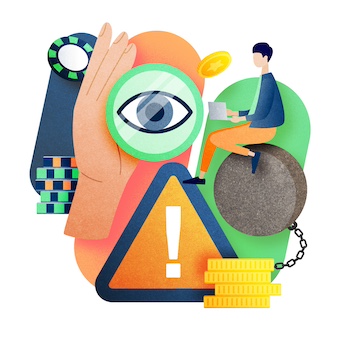 What to Do if Someone You Know Has a Gambling Problem
What to Do if Someone You Know Has a Gambling ProblemWhen someone close to you has a gambling problem, it can start to affect you as well. As well as being there for those people, you must protect yourself from any harm that may arise from your friend or family member’s problem gambling.
If you know someone who has a gambling problem, one of the most important things to remember is that it's not your fault. Coping with a family member or friend's gambling problem can be challenging. Remember that you can not force them to acknowledge that their gambling is harmful, all you can do is support them and encourage them to enter into recovery.
All of the support organizations you can find in this series are there to support friends and family, as well as problem gamblers themselves. If you feel lost or helpless, those professionals can explain the next steps for you.
Personal finances can be a tricky and private subject. However, if someone close to you has a gambling problem, you may need to protect your family from a financial perspective. Make a family budget, especially if you need to repay debt, and track and manage your assets as much as possible.
Loving and supporting someone with a gambling problem can be extremely difficult. You want to offer support but worry about enabling the behavior you're trying to help them overcome. It can be delicate, where good intentions can sometimes backfire.
Here are some do's and don'ts of supporting someone trying to improve their life and their problem gambling situation:
DO seek the support of others with similar problems, such as self-help groups
DO recognize your friend or family member’s good qualities
DO set boundaries in managing money; take control of family finances
DO remain calm when speaking to people with a gambling disorder
DO NOT preach, lecture, or lose control of your temper
DO NOT exclude the gambler from your or your family's life
DO NOT expect instant results and recovery
DO NOT bail out and pay money to the gambler
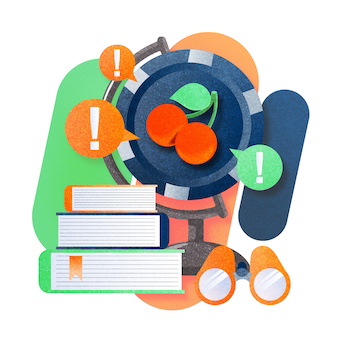 Brief History of Problem Gambling
Brief History of Problem GamblingFor as long as there has been gambling, there have been gambling problems.
Back in the 16th century, the celebrated scientist and mathematician Gerolamo Cardano wrote in his autobiography, “as I was inordinately addicted to the chessboard and the dicing table, I know I must be deserving of the severest censure.”
In the 18th century, when the stock markets emerged, one of the most prominent examples of problem gambling was Sir Isaac Newton. He gambled his purchases and sales in the South Sea Bubble with a loss of £20,000.
We know that in extreme cases problem gambling can have devastating mental and physical consequences. One of the worst murderers in British history, Dr. William Palmer, poisoned between 12 and 15 family members just to be able to pay his gambling debt in 1855.
Illegal and unregulated gambling has understandably always gone hand in hand with illicit characters and other illegal activity, to the detriment of vulnerable people who are struggling with gambling problems.
Online gambling, which has emerged along with the internet, has brought new challenges for problem gamblers, including cyber addiction, isolation, and underage gambling. Various governments and gambling commissions have come up with all kinds of safeguards for these, including self-exclusion and other tools we’ve covered on this page.
Ultimately, gambling at safe, legal, and regulated operators - both online and offline - is always going to give you the best chance at staying safe.
Responsible Gambling Center: Helping You Gamble Safely
11 months ago | Pat Eichner/fit-in/400x235/1713863942/feature-responsible-gambling-tools.jpg)
Responsible Gambling Tools and Resources
11 months ago | Pat Eichner/fit-in/400x235/1713865152/feature-guide-to-resp-gambling-in-marketing.jpg)
Guide to Responsible Gambling in Marketing
11 months ago | Pat Eichner
We support responsible gambling. Gambling can be addictive, please play responsibly. If you need help, call
1-800-Gambler.
WSN.com is managed by Gentoo Media. Unless declared otherwise, all of the visible content on this site, such
as texts and images, including the brand name and logo, belongs to Innovation Labs Limited (a Gentoo Media
company) - Company Registration Number C44130, VAT ID: MT18874732, @GIG Beach Triq id-Dragunara, St.
Julians, STJ3148, Malta.
Advertising Disclosure: WSN.com contains links to partner websites. When a visitor to our website clicks on
one of these links and makes a purchase at a partner site, World Sports Network is paid a commission.
Copyright © 2025